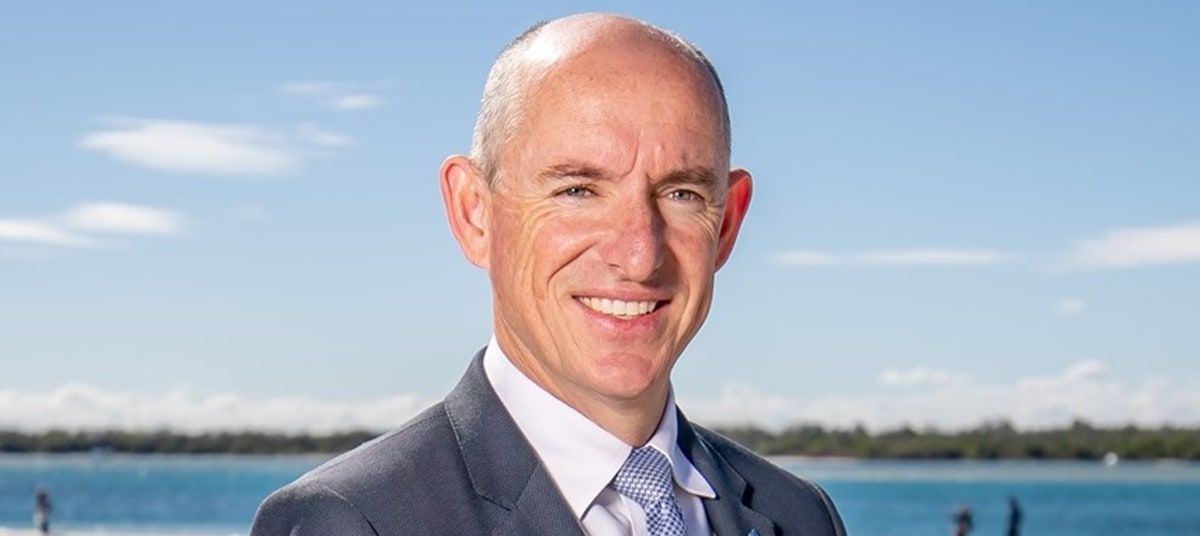
The buffer applied to mortgages is currently “too high” and “should be moderated”, shadow assistant treasurer and financial services minister, Stuart Robert, has said.
Calls for the prudential regulator to revisit the serviceability buffer that banks must apply to mortgages when writing home loans have been bolstered after shadow assistant treasurer and financial services minister, Stuart Robert, joined the chorus for reform.
Earlier this year, the Australian Prudential Regulation Authority (APRA) confirmed that it believed its macroprudential policy toolkit remained “appropriate” even as domestic and global economic conditions deteriorate.
Loan serviceability measures were changed in October 2021 (when the cash rate was still at its emergency pandemic settings of 0.10 per cent and record numbers of Australians were buying property with mortgages) so that banks had to assess borrowers with a buffer of 3.0 per cent (up from 2.5 per cent).
Following a review of its settings given the changing economic conditions, the regulator confirmed in February that it would be maintaining the serviceability buffer at 3.0 per cent above the loan rate.
APRA chair John Lonsdale commented at the time: “APRA’s view is that the 3 per cent level remains prudent given the potential for further interest rate rises, high inflation and risks in the labour market”.
However, he added that settings would be adjusted should risks to financial stability change.
The move was met with criticism from members of the mortgage broking and lending industries, who have argued that the serviceability hurdle is now too high.
Speaking to Mortgage Business sister brand ifa, the Australian Liberal Party politician highlighted the plight of ‘mortgage prisoners’, Australians who have a mortgage but cannot refinance to “a better loan because they get trapped by that higher rate of mortgage”.
With home loan rates rising rapidly as the cash rate increases, Mr Robert said that he believed applying a 3 per cent buffer on top of a product rate effectively means that borrowers are unable to qualify for a loan.
Speaking on the ifa Show podcast, the shadow assistant treasurer said: “Do I think the buffer at 3 per cent is too high? Yes, I do. I think it should be moderated, and we [the former Morrison government] certainly moderated it as the cash rate came down. But it went back up again [and] there’s probably some space in the middle.”
The member for Fadden suggested that mortgage brokers are, right now, “a home mortgage borrower’s best friend”.
Reiterating his support for the broker channel, he continued: “The answer is: always engage with mortgage brokers. Something like 80 per cent of mortgages are now being written by brokers and you’re seeing enormous competition…
“My advice … would be: go speak to your mortgage broker and see what your options are. Have a sensible, honest conversation and look where those options are. We don’t want to see people trapped within their banking space.”
Stuart Robert on the RBA
When asked for his thoughts on whether the governor of the Reserve Bank of Australia (RBA), Philip Lowe, should remain in his position following the end of his term in September, Mr Robert said that while political appointments were a “question for the government”, he said he believed the governor had done a good job steering the economy over the pandemic years.
The shadow assistant treasurer said: “I think Phillip Lowe, during the entire crisis of COVID — and prior to that — did an outstanding job. Yes, there’s been criticisms of the Reserve Bank, as there have been criticisms of all during a one-in-100-year pandemic where there’s no playbook.
“[But] I think Governor Lowe can be very proud of what he did. I think he served the government of the day very well. I dealt with him a lot on the Expenditure Review Committee and I always found him very upright and professional.
“I’ll leave the government to the day to determine who the next Governor of the Reserve Bank should be, but I think we’ve been well served.”
Noting the recent release of the RBA review, Mr Robert added he believed the conclusions were “reasonably sensible”.
He said: “It puts us in line with others in the OECD, like Canada and Great Britain for example. Moving from 11 to eight meetings when rates will be set does provide some breathing space. Looking at different skill sets in how you run a bank versus setting mortgages does theoretically widen the skill sets you can draw on for those two very important tasks.
“On the whole, I think the review of the Reserve Bank is sound.”
You can hear more from Stuart Robert in this special episode of the ifa podcast.
Tune in to the episode with the shadow assistant treasurer, The shadow minister’s unfiltered take on financial advice: QAR, FASEA, and Labor Party’s approach, on the ifa show here:
[Related: APRA buffer ‘unfair trap’ for mortgagors, CEO says]

